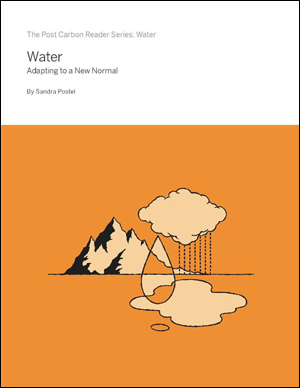
Water: Adapting to a New Normal
June 22, 2010
Water, like energy, is essential to virtually every human endeavor. It is needed to grow food and fiber, to make clothes and computers, and, of course, to drink. The growing number of water shortages around the world and the possibility of these shortages leading to economic disruption, food crises, social tensions, and even war suggest that the challenges posed by water in the coming decades will rival those posed by declining oil supplies.
In fact, our water problem turns out to be much more worrisome than our energy situation, for three main reasons. First, unlike oil and coal, water is much more than a commodity: It is the basis of life. Deprive any plant or animal of water, and it dies. Our decisions about water and how to use, allocate, and manage it are deeply ethical ones; they determine the survival of most of the planet’s species, including our own. Second, also unlike oil and coal, water has no substitutes. The global economy is transitioning away from fossil fuels toward solar, wind, and other noncarbon energy sources, but there is no transitioning away from water. And third, it is through water that we will experience the impacts of climate change most directly.
This is a chapter from The Post Carbon Reader: Managing the 21st Century’s Sustainability Crises (2010).
